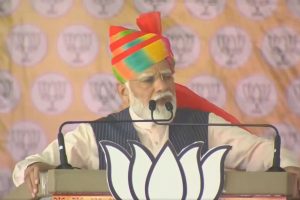Google, Facebook, Microsoft and more than a dozen top technology companies of United States (US), on Monday joined a lawsuit filed by the Harvard University and the Massachusetts Institute of Technology against the Immigration and Customs Enforcement’s (ICE) latest rule that bars international students from staying in America unless they attend at least one in-person course.
Seeking a temporary restraining order and a preliminary injunction, these companies, along with the US Chamber of Commerce and other IT advocacy groups asserted that the July 6 ICE directive will disrupt their recruiting plans, making it impossible to bring on board international students that businesses, including amici, had planned to hire, and disturb the recruiting process on which the firms have relied on to identify and train their future employees.
The US will “nonsensically be sending…these graduates away to work for our global competitors and compete against us…instead of capitalising on the investment in their education here in the US”, they said adding that the July 6 directive will make it impossible for a large number of international students to participate in the CPT and OPT programmes.
The Curricular Practical Training (CPT) programme permits “alternative work/study, internship, cooperative education or other type of required internship or practicum offered by sponsoring employers through cooperative agreements with a student’s school”.
On the other hand, the Optional Practical Training (OPT) programme allows up to one year of temporary employment that is directly related to an international student”s major area of study, which can occur either before the student graduates and/or after his studies are complete. Students in STEM fields may obtain a two-year extension of their post-graduate OPT, they said.
“Closing off more than half of all international students from participating in the recruiting pipeline for American businesses will thus harm companies and the entire economy, and disrupt reliance expectations based on prior policies permitting international students to remain in the US,” the firms said.
Asserting that international students contribute substantially to the US economy when they reside in the United States, the legal brief said the departure of these students threatens the ability of US educational institutions to sustain critical mass — which they need in order to maintain their standards of excellence, to train the American students who will make up the talent pool available to amici and other US companies in the future, and to perform the research that keeps US businesses on the cutting edge of innovation.
“International students are an important source of employees for US businesses while they are students and after they graduate. Finally, they become valuable employees and customers of US businesses whether they remain in the United States or return to their home countries,” the companies said.
According to the IT companies, international students residing in the US make a substantial contribution to the country’s GDP and have a particularly significant impact in towns and cities where colleges and universities are located. During the 2018-2019 academic year, there were more than 10 lakh such students attending institutions of higher education in the US.
Reducing by half or more the number of international students residing in the United States — even for a single school year — will hurt the economy, amplifying the adverse economic effects of the ongoing pandemic. International students contribute billions of dollars to the US economy each year. In the 2018-2019 academic year alone, “international students at US colleges and universities contributed nearly USD 41 billion to the US economy and supported 458,290 jobs”, the companies said.
Observing that for every seven international students living in the US, three jobs are supported due to their presence, the companies said international education “ranked as the country”s fifth-largest service export” in 2019. Small businesses — from coffee shops to bookstores — in communities around the country benefit significantly from the presence of international students, they said.
The companies told the court that if these students are barred from studying in the US until the SARS-CoV-2 pandemic ends, many of them will not return: they will switch to programmes of study elsewhere in the world. And without international students, many the US STEM programmes will contract sharply and ultimately cease to exist.
US Immigration and Customs Enforcement notified colleges in its July 6 order that non-immigrant F-1 and M-1 students attending schools operating entirely online or taking only online courses will not be permitted to take a full course load and remain in America.
The modifications also limited many students at normally operating schools from taking more than one class or three credit hours online in order to remain in the country.
Meanwhile, on July 10, a group of 30 US Senators and 136 Congressmen, all from the opposition Democratic Party, had urged the President Donald Trump-led administration to reverse its order that bars international students from staying in the country if they do not have in-person classes to attend next semester.
In separate letters to Acting Secretary, Department of Homeland Security, Chad Wolf and Acting Secretary, Immigration and Customs Enforcement (ICE), Matthew Albence on Thursday, the lawmakers expressed concern over the ICE’s recently announced modifications to the Student Exchange and Visitor Program (SEVP).











